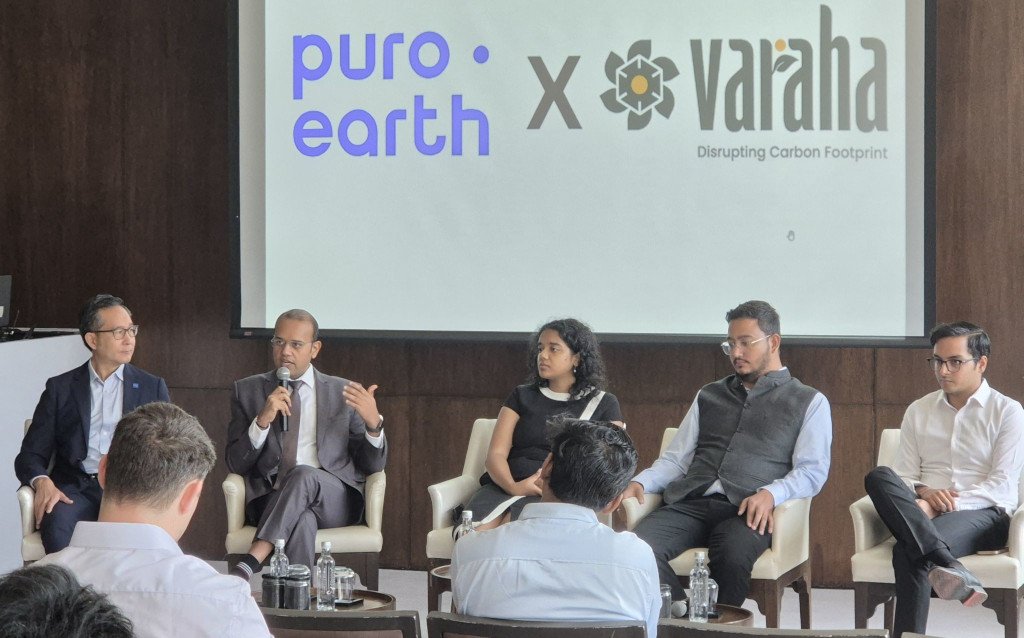Varaha, an India-based carbon removal company, has recently issued the country’s first carbon dioxide removal (CDR) credits derived from industrial biochar through the Puro.Earth registry. This achievement marks the initial issuance of biochar-based CDR credits in India, indicating a notable development in carbon removal initiatives within the region.
Biochar Production from Agricultural Waste
Varaha’s project, based in Telangana, India, produces biochar, a carbon-rich material made from agricultural waste, specifically corn shanks. The gasification process used to create biochar locks carbon in the material, preventing emissions that might otherwise result from waste mismanagement or fossil fuel use. In addition to sequestering CO2, biochar can significantly enhance soil fertility and potentially lock carbon away for thousands of years. This process not only contributes to carbon removal but also improves soil health and boosts agricultural productivity.
Puro.Earth CDR Credits and Varaha’s Role
By issuing these CDR credits under the scientific standards of Puro.Earth, Varaha positions itself as a prominent project developer for industrial biochar credits across South and Southeast Asia. The company utilizes an in-house digital platform for measuring, reporting, and verification (MRV), which precisely quantifies the sequestration from its biochar projects. This MRV platform, designed for scalability, aligns with Varaha’s broader mission to implement sustainable carbon removal efforts globally.
Expanding Impact Across Multiple Regions
To date, Varaha has enrolled over 900,000 acres of farmland across India, Bangladesh, Nepal, and Kenya. Collaborating with more than 100 partners across these regions, the company’s initiatives encompass diverse objectives: improving soil health, conserving water, enhancing biodiversity, and supporting global companies in reaching net-zero goals through science-backed carbon removal credits.
Madhur Jain, Co-Founder and CEO of Varaha, stated that this issuance of carbon removal credits signals a new chapter in India’s carbon removal journey. Jain emphasized the scalability of Varaha’s MRV technology, indicating confidence in its potential deployment across smallholder geographies worldwide through partnerships.
Alvin Lee, Regional Head of Asia-Pacific for Puro.earth, expressed appreciation for Varaha’s dedication to aligning with the Puro Standard Biochar Methodology. Lee highlighted that discussions with experts at the IETA Asia Climate Summit suggest a growing potential for carbon removal services within India.
Read more: Newly Launched BRIC-NABI Institute to Drive Agri Innovation, Farmer Income in India
Understanding the Puro.Earth Registry and CORCs
Puro.Earth’s registry offers CO2 Removal Certificates (CORCs), which denote net carbon removal and support carbon neutrality claims. Each CORC signifies one metric ton of long-term CO2 removal and aligns with science-based Puro Standard methodologies. CORCs are updated daily on the registry, with labels like CORC100+ and CORC1000+ denoting storage durability, although specific retention durations may vary by methodology.
Puro.Earth has established methodologies for capturing CO2 through biochar and other techniques like enhanced rock weathering and Direct Air Capture (DAC). Unlike traditional offsets that focus on reducing emissions, CORCs are exclusively dedicated to carbon sequestration.
Varaha garnered approximately $13 million in equity funding, bolstered by an $8.7 million Series A round in February 2024. This funding round was led by RTP Global, with support from Omnivore, Orios, Norinchukin Bank, and other investors.

